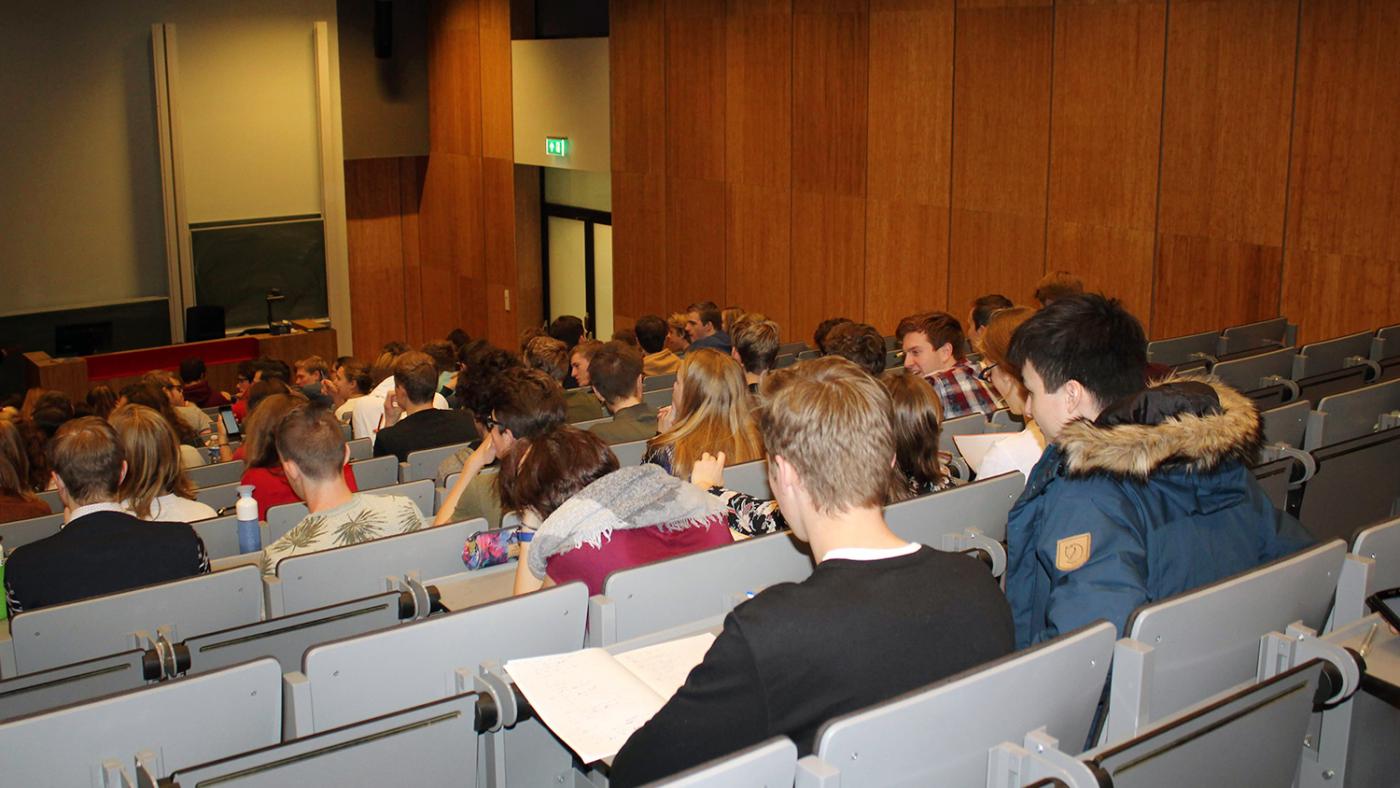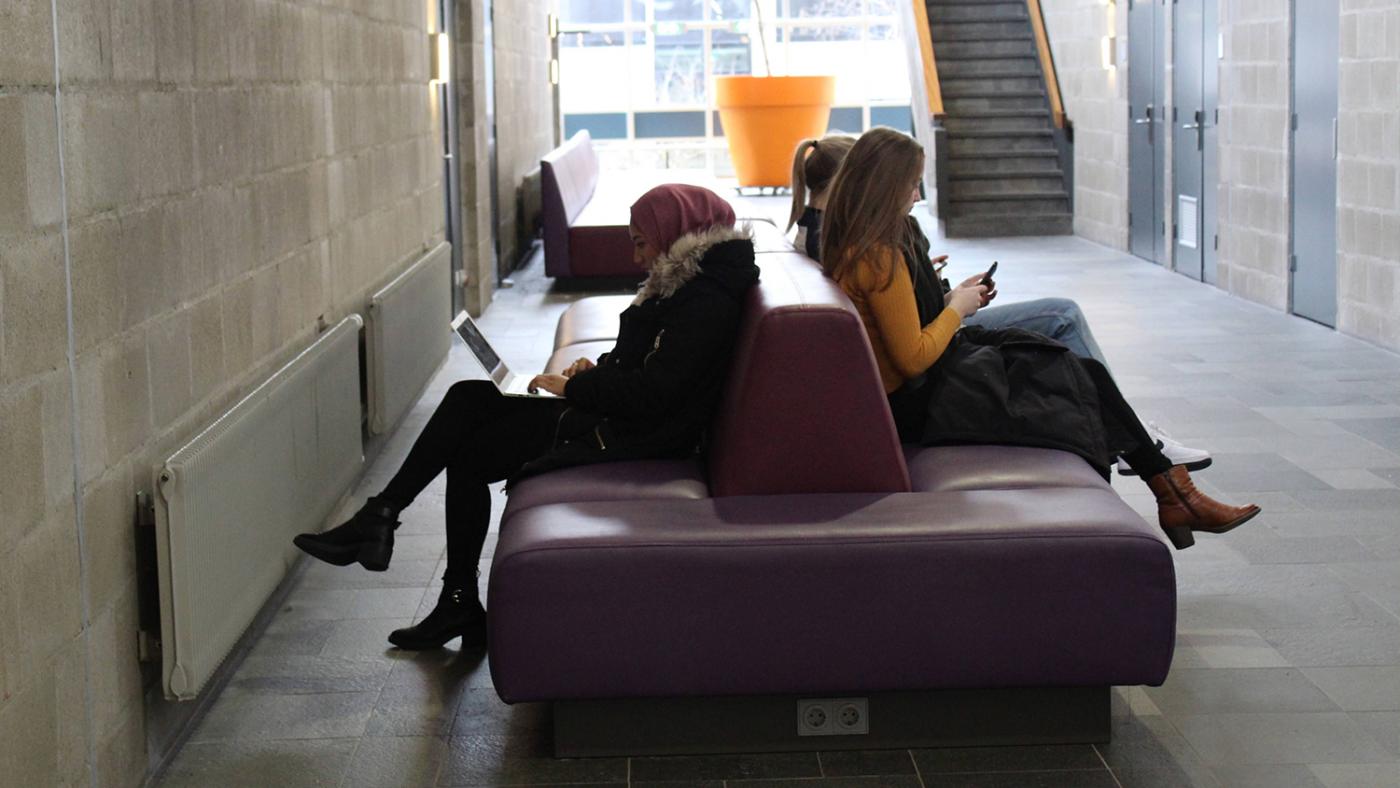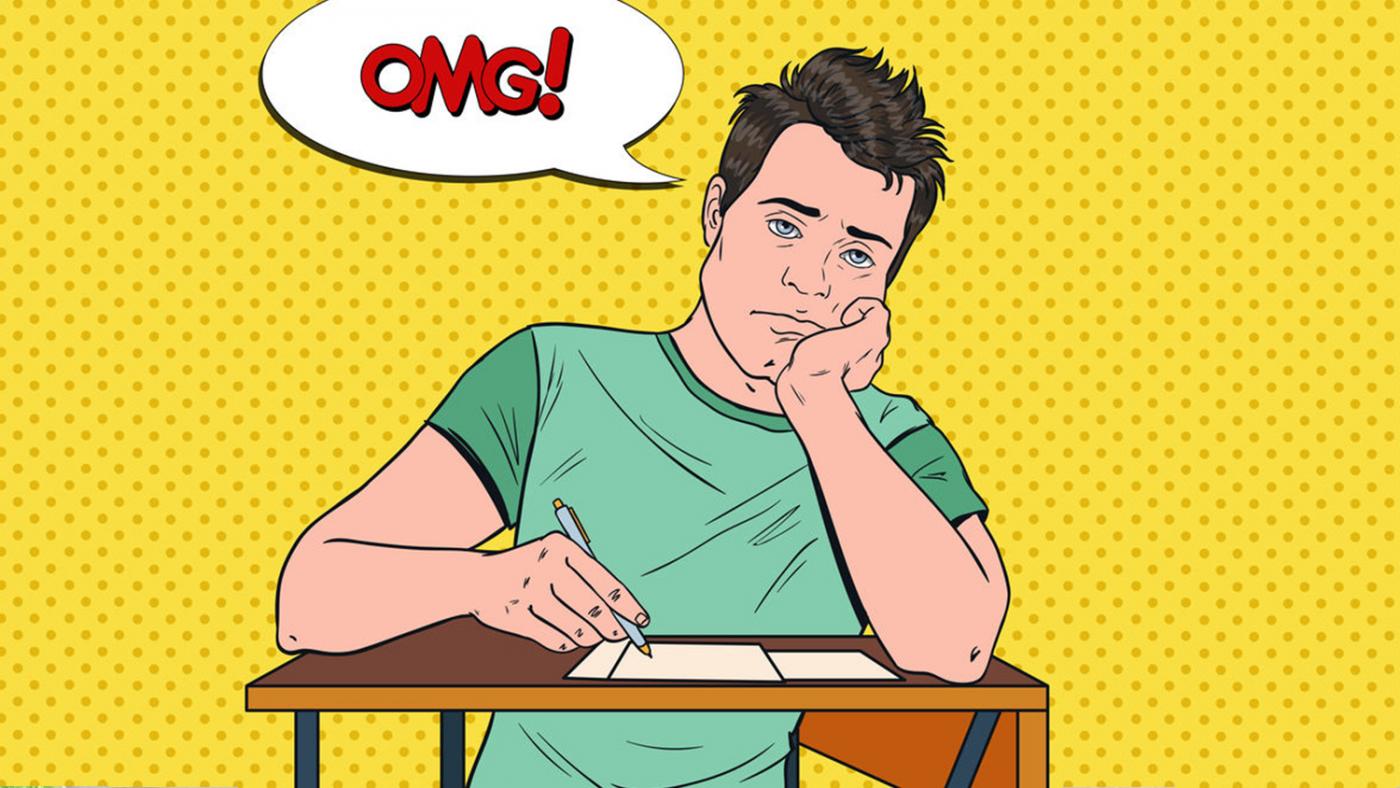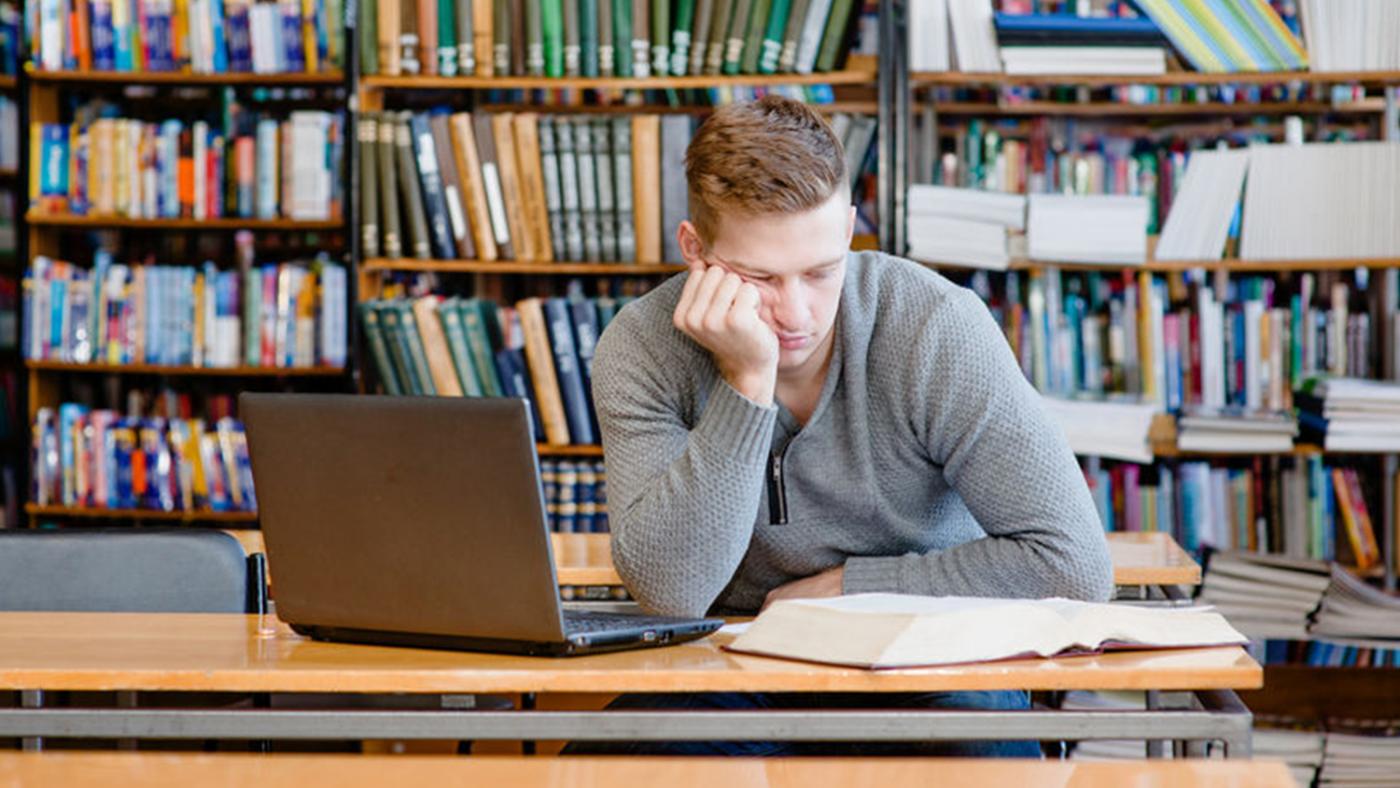By means of animated videos
University tries to get students back in the saddle after Covid

"They don’t know how to treat each other, or us, anymore." That’s a cry the Team Manager for Educational Policy at the Faculty of Law, Caspar de Bok, has been hearing all too often these past few months. It looks like the transition from high school to university has been a bumpy one ever since the Covid-19 pandemic hit. “Sometimes, students don’t seem to be aware of basic etiquette anymore. Online classes are definitely different from classes in person.”
According to him, the worries concern several areas. Many students prefer not to be addressed in class and they don’t participate actively, for example. Others don’t know how to properly communicate with teachers via e-mail. When issues arise, this generation of students tends to escalate things quickly as well: it doesn't take long for them to take things to the Exam Board. Last but not least, videos taken inside the classroom are not rare to find on TikTok and other social networks.
This is not the first time DUB hears this. Marian Joseph, the first person to occupy the role of Teachers Counsellor at the Faculty of Law, has also indicated that many teachers are straddling with these things. In her role, Joseph assists lecturers who don’t know how to handle their students’ behaviour.
Students themselves have been noticing there are issues, too, De Bok emphasises. “They tell us that they’re not sure when to approach a lecturer or how they should go about it. In addition, many of them don't know where to go when a lecturer can’t answer their questions or help them.”

Photo: DUB
Talking is better than imposing rules
Since other faculties have been complaining about the same thing, De Bok and his colleagues felt it was necessary to discuss all the irritation, misunderstandings, and questions. Thanks to a subsidy from the National Education Programme (NPO) funds, they are now working on a number of animated videos that discuss several situations students may encounter during their studies.
In De Bok's view, a conversation about desired behaviours (during the introduction week or a meeting with a tutor, for example) works better than simply imposing rules. He says that videos can address issues in a light-hearted way while also offering the bigger picture.
"Alongside students and lecturers, we are studying which situations and topics these animated videos should talk about. The goal is that all UU programmes will be able to use them once the new academic year starts.” He adds, laughing: "In the end, I hope fewer lecturers will knock on Marian Joseph’s door.”
The president of the student delegation in the University Council, Job de Jager, hasn’t seen much evidence that Covid has made students' behaviour change all of the sudden. “Wasn't this type of complaint common before Covid too?” Still, he agrees that the videos might be a good idea. “New students always have a hard timing finding their way around the university. Every lecturer is different, they all act differently, which makes it hard to figure out what is realistic to expect from a teacher. It’s good to make this explicit.”
He does have his doubts whether videos and talks will make that happen, though. “This should actually be a continuous conversation within programmes, between fellow adults, right?”
Open attitude
According to Professor Leoniek Wijngaards-de Meij, knowing how to treat each other and the teacher is also fundamental because the university wants the dialogue to be "open" in the classroom. Alongside Policy Advisor Kim Zunderdorp, Wijngaards-de Meij leads Open Education, a programme that aims to drive the university closer to societal issues.
For that to happen, students also need to have an "open attitude", so that they can engage in crucial debates that are often polarised. Students have been demonstrating increasing interest in these matters, which means these discussions are also taking place in the classroom more often.
Wijngaards-de Meij: "We would like students to be able to engage in an open conversation with each other. That's why it's fundamental to talk to each other about how to do that and what concepts like 'academic freedom' mean."
Her own faculty, Social Sciences, is one of the faculties in which studies are being carried out about the agreements students and lecturers have to make in order to have fruitful discussions.
Clearer
Educational scientist Luce Claessens also thinks that programmes should take action to ensure students know what’s expected of them. To her, they seem a bit confused about this.
“Studying at a university is also a matter of ‘enculturation’: making the rules and culture of a certain setting your own. During Covid, that setting was markedly unusual. Students coming straight out of high school spent two years at home. They didn’t practice the basic processes that are crucial at a university, such as working together, debating, and daring to be autonomous in a group.”
She feels that having this conversation with students is essential but the university should be much clearer as well. “We were rightfully flexible during Covid. So, at a certain point, our students basically assumed they would get opportunities to resit an exam. But that’s no longer the case. That's why we sent an e-mail explaining the rules regarding resits and stressing that we’re going to stick to those rules.”
The same applies to attendance rules, which according to Claessens can serve an important purpose. “Many students don’t come to class anymore. They have several reasons for doing this: it is more common for Dutch students to be living with their parents. who still live with their parents, for instance. But there are also those who have also a little bit afraid of being around other people, which is a shame. After all, those who don’t show up tend to be less committed to the programme as well. Basic motivational theory states that commitment is a prerequisite for feeling motivated.”
Studies are less of a priority
Senior teaching fellows are equally worried about students' lack of commitment these days. Innovation scientist and senior fellow Frank van Rijnsoever says the topic has been discussed several times in the meetings and gatherings held by these university big-wigs in the past few months. “We also talked about it because it’s so closely connected to student's wellbeing.”
According to Van Rijnsoever, the more apathetic study approach was already a trend before Covid-19 hit — the pandemic has only accelerated it. “Only 38 students signed up for a visit to semiconductor company ASML. On the day itself, we had ten no-shows without any notice. I think that's pretty telling. More and more, students are like 'nice that you offer that, I’ll see if I’ll use it or not.'”
Van Rijnsoever finds that academic studies and engaging with other students are less and less of a priority for a growing number of students. “Especially during Covid, students found solace in other social networks, their roommates, their group of friends, their job, or student association.”
Not just a knowledge factory
He thinks the university has partially brought this on itself as a result of the lack of meeting spaces for students and the introduction of a significant amount of online education. UU's educational model, which offers a lot of maneuvering space, doesn't help either. “This model gives you the space to create your own study programme but that means students are constantly sharing classrooms with other students that they don’t know. That doesn’t contribute to forming a community.”
However, Van Rijnsoever adds, this is a societal development that the university will simply have to deal with. "The old normal will not be coming back". He doesn’t see the value of more obligations, either.
“We’ll have to give students a reason to come to class because we are interested in being an academic community and not just a knowledge factory. In my view, that means education will have to be 'activating'. Students won’t come to campus just to listen to a lecture when they can watch or listen to the content at home with knowledge clips or podcasts. When students are on campus, they should be focusing on interacting and learning skills, things you can’t do at home.”

Photo: Shutterstock
A lot of energy
Luce Claessens also acknowledges options to make education more innovative and engaging but, at the same time, doesn't see that many developments in that area. “I would have liked us to move towards a new normal this way but what I'm actually seeing is the opposite. Lecturers are often falling back to their well-known rhythm of classes followed by exams — in part because students themselves are asking for that. They say it’s not pleasant to watch videos at home and only come to university for debates and discussions. They seem to be asking for standard lecturers in which teachers tell them what things are.”
Once again, University Council member Job de Jager wonders if lecturers’ complaints about apathy and lack of involvement are actually new or Covid just helped them put things into perspective. He refers to the discussion about zesjescultuur (the Dutch tendency to go for a 6 out of 10 grade, Ed.) which has been around for much longer. “It’s not the first time that we hear that students aren’t focussing exclusively on their studies. Part-time jobs, be they financially necessary or not, have become more important. The same holds for extracurricular activities. The pressure on students to do more than study has been increasing for years.”
De Jager also supposes that students have a lot of energy now, which they're not investing in their studies because school or university was the only thing they could do during Covid. So many things are available for them again. “Everyone spent on their laptops, which also led to many mental health problems. Now, it’s time for other things.”
He doubts this will be a lasting effect. “At any rate, I think it’s important for the university to reflect on how an academic study can relate to all those other things that matter to students and what kinds of education go with that.”
Harder time
Both Van Rijnsoever and Claessens indicate that their respective programmes had already decided to make additional efforts to show this new generation exactly what being a university student means. Most of all, that entails "learning how to study".
Paying attention to that is all the more important considering both have noticed that new students seem to be having a harder time with their studies. Van Rijnsoever: “Evaluations have shown that the same course is being assessed as harder each new year, even though barely anything has changed in the course itself.”
Claessens: “We've noticed that there are students who simply can’t get by, not to mention the increasing number of students with actual mental health issues. That requires what I call 'flat self-regulation’. How are you studying? What do you spend time on? These are things programmes have to assist students with more actively than they did a few years ago.”

Photo: 123rf